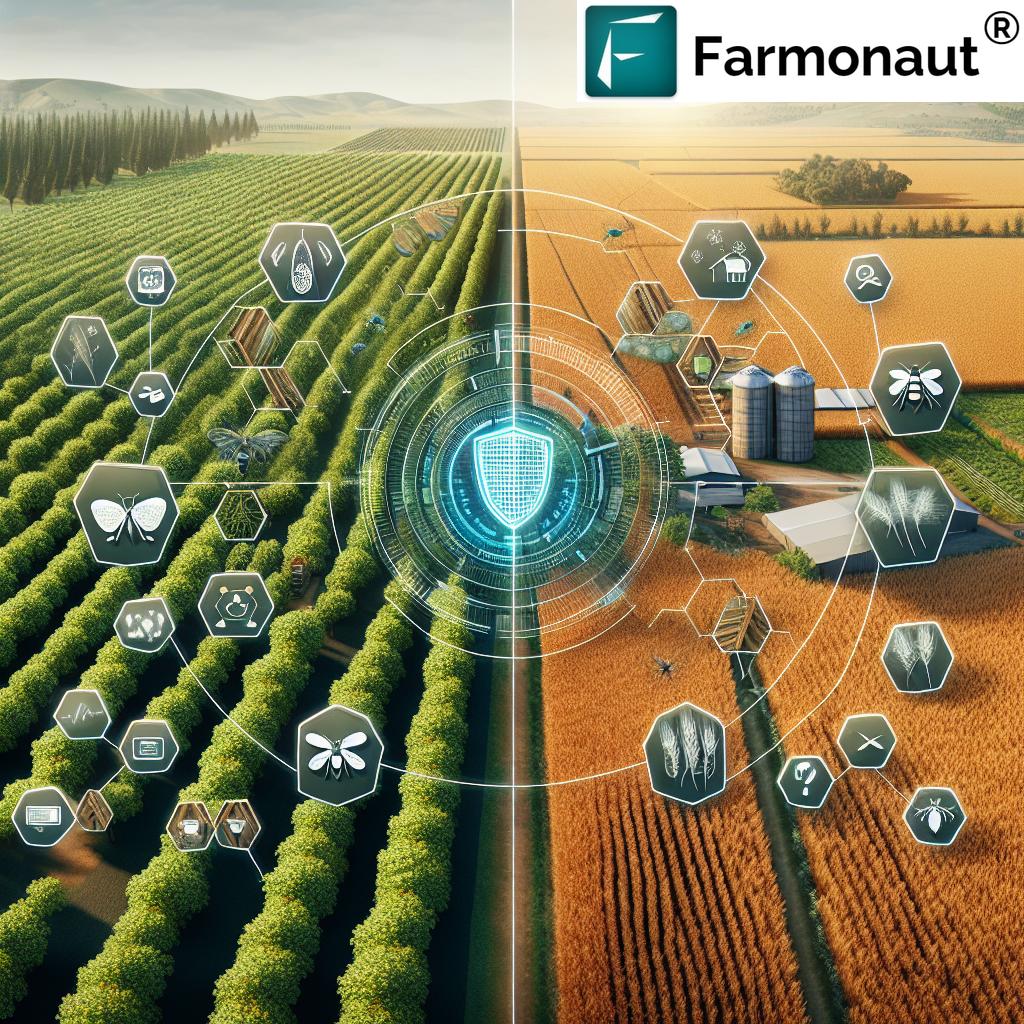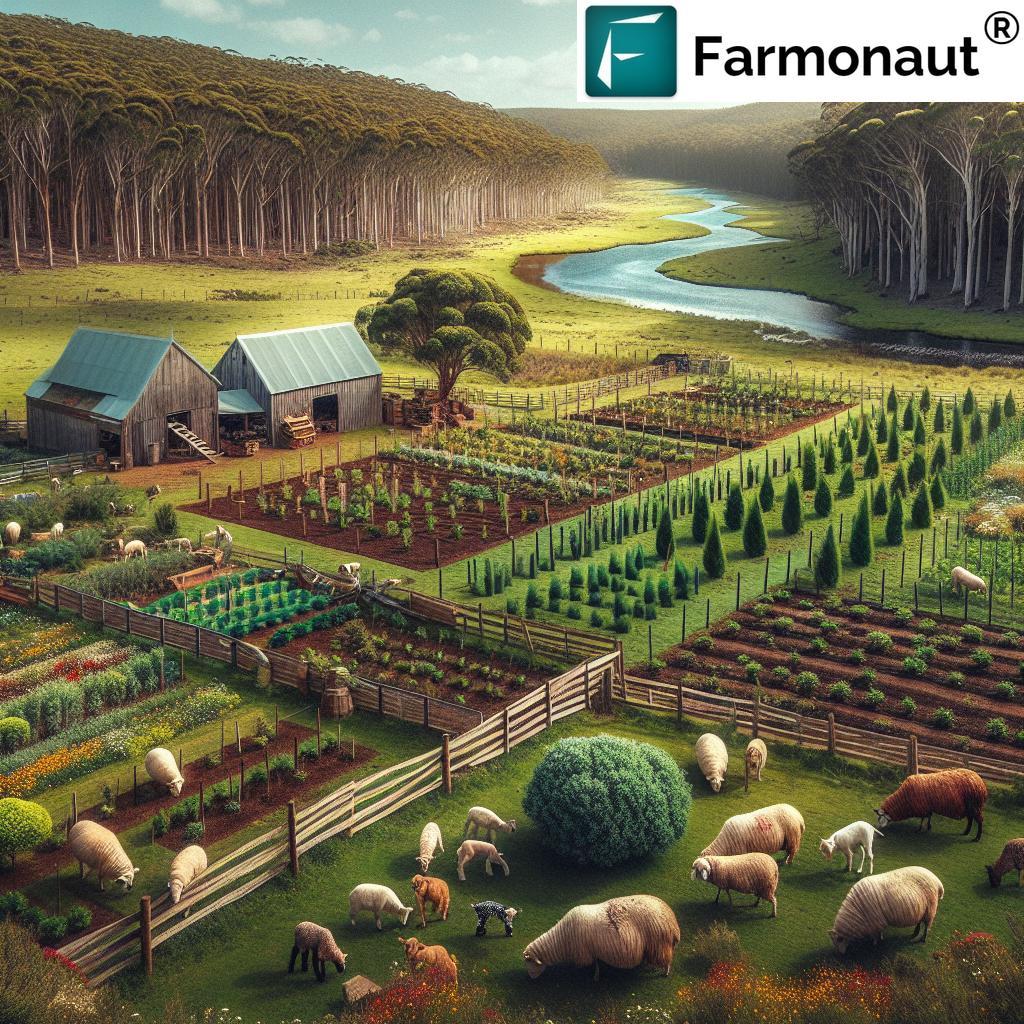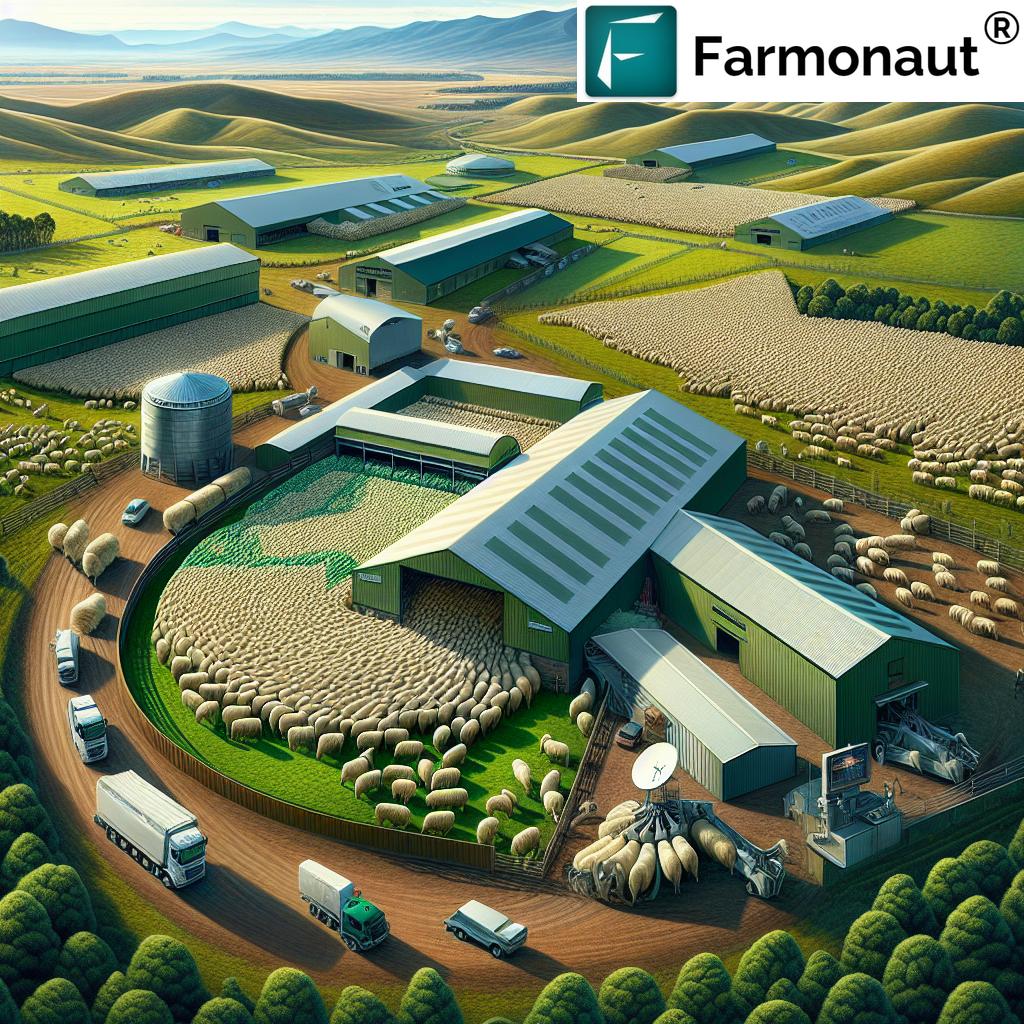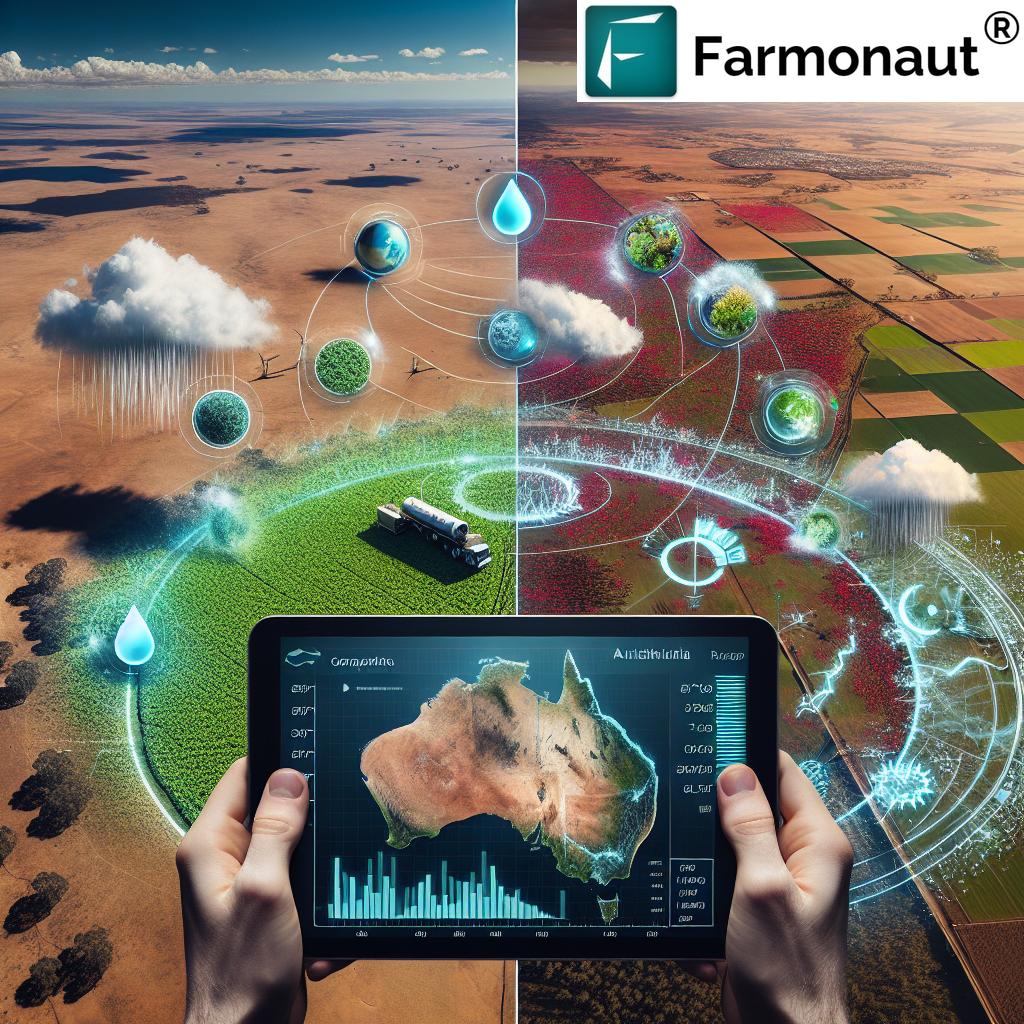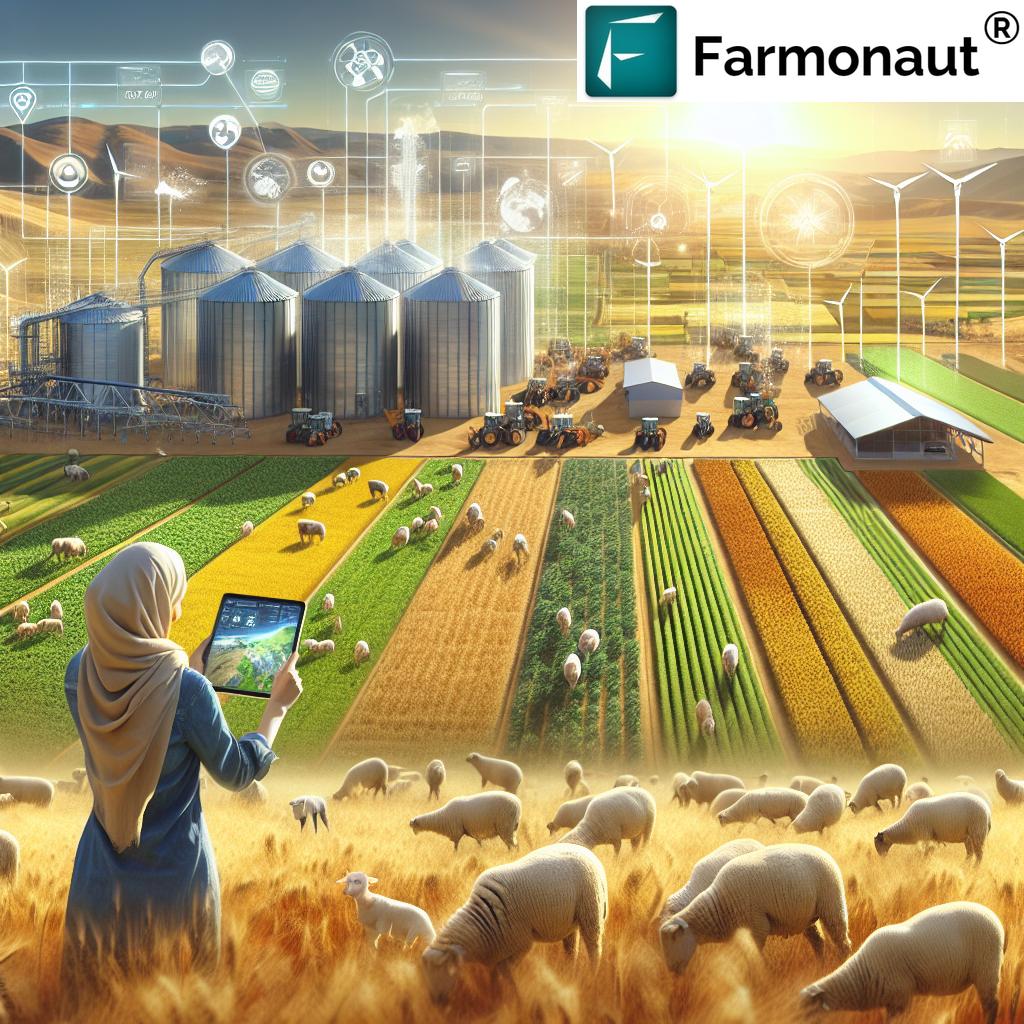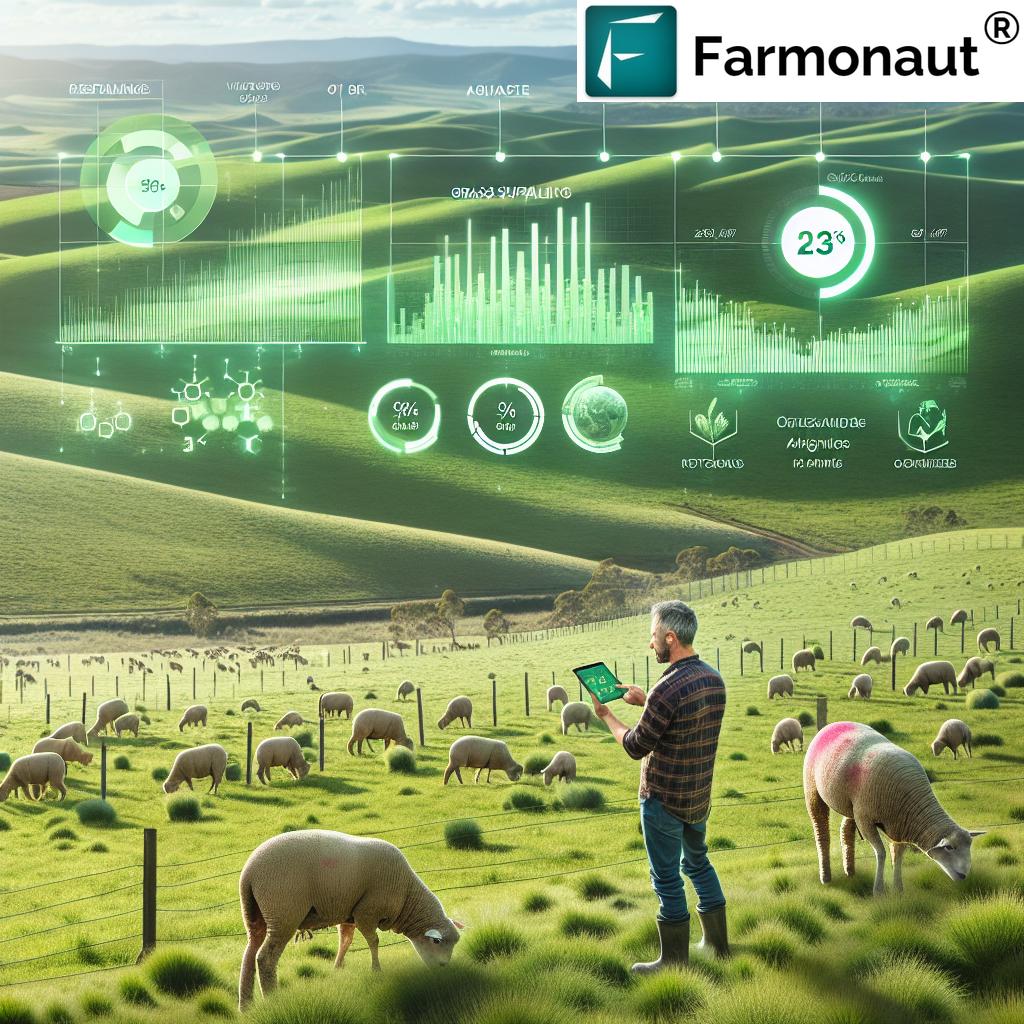Sustainable Farming in NSW: Navigating Challenges and Opportunities for Winter Crops in 2024
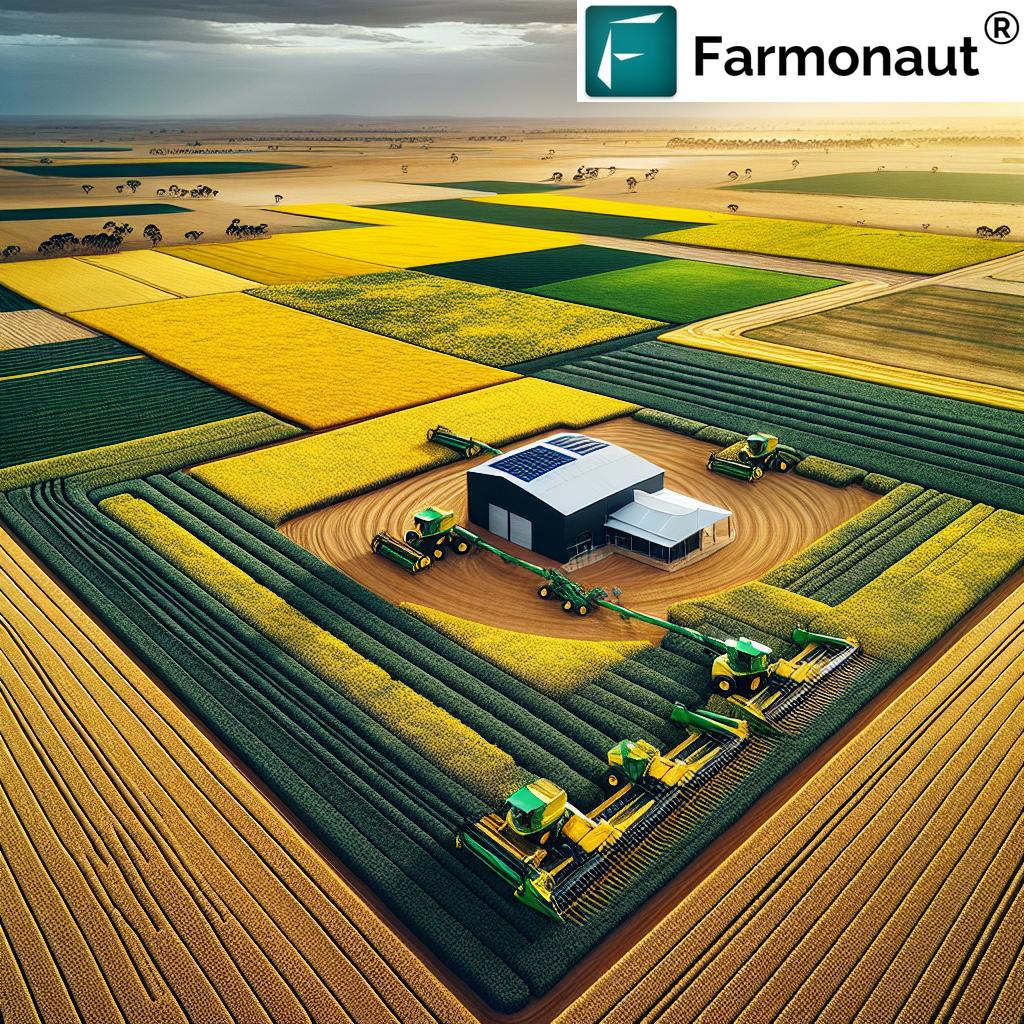
“NSW’s Liverpool Plains farmers achieved promising wheat and barley yields in 2024, thanks to favorable rainfall patterns.”
Welcome to our comprehensive exploration of sustainable farming practices in New South Wales (NSW), with a special focus on the exciting opportunities and challenges facing winter crops in 2024. As we delve into the heart of the Australian grain industry, we’ll take you on a journey through the fertile fields of the Liverpool Plains and beyond, showcasing how innovative growers are adapting to climate challenges while maintaining profitable and resilient farming systems.
In this blog post, we’ll share valuable insights from the paddock perspective, highlighting the latest crop rotation strategies, precision agriculture technologies, and sustainable farming practices that are shaping the future of agriculture in NSW. We’ll explore how farmers are navigating the complexities of climate change, managing soil moisture, and implementing integrated pest management techniques to ensure the success of their winter crops.
The 2024 Winter Crop Outlook: A Promising Season Ahead
As we look towards the 2024 winter cropping season in NSW, there’s a palpable sense of optimism among growers. Favorable rainfall patterns have set the stage for what could be a bumper year for wheat and barley yields. Let’s break down some of the key factors contributing to this positive outlook:
- Rainfall: Above-average rainfall in many parts of NSW has replenished soil moisture levels, providing an excellent foundation for winter crop establishment.
- Temperature trends: Mild autumn conditions have allowed for timely sowing and strong early crop development.
- Market conditions: Strong global demand for Australian grains is driving positive price forecasts for wheat and barley.
These favorable conditions are not just a stroke of luck; they’re the result of careful planning and sustainable farming practices implemented by forward-thinking growers across the state. Let’s dive deeper into how farmers are making the most of these opportunities while addressing the ongoing challenges of sustainable agriculture.
Crop Rotation Strategies: The Key to Sustainable Success
One of the cornerstones of sustainable farming in NSW is the implementation of effective crop rotation strategies. By carefully planning the sequence of crops grown in a field, farmers can improve soil health, break pest and disease cycles, and optimize resource use. Here’s how growers in the Liverpool Plains and beyond are leveraging crop rotation to boost their winter crop prospects:
- Diverse crop selection: Incorporating a mix of cereals (wheat, barley), oilseeds (canola), and legumes (chickpeas) in rotation.
- Soil health management: Using cover crops and green manures to improve soil structure and nutrient content.
- Pest and disease management: Breaking pest lifecycles by alternating host and non-host crops.
- Water use efficiency: Selecting crops with different rooting depths to maximize water utilization throughout the soil profile.
By implementing these strategies, NSW farmers are not only improving their winter crop yields but also building long-term resilience into their farming systems.
Precision Agriculture Technologies: Revolutionizing Winter Crop Management
The adoption of precision agriculture technologies is transforming winter crop management in NSW. These innovative tools are enabling farmers to make data-driven decisions, optimize resource use, and improve overall farm profitability. Let’s explore some of the key technologies making a difference:
- Satellite-based crop monitoring: Real-time imagery and vegetation indices to track crop health and development.
- Variable rate technology: Precise application of inputs based on field variability and crop needs.
- Soil moisture sensors: Accurate monitoring of soil water content to inform irrigation decisions.
- Weather stations: Hyperlocal weather data to support timely management decisions.
One company at the forefront of this technological revolution is Farmonaut. Their satellite-based farm management solutions are helping NSW farmers make informed decisions about their winter crops. By providing real-time crop health monitoring, AI-based advisory systems, and resource management tools, Farmonaut is empowering growers to optimize their operations and improve sustainability.
Climate Resilient Farming: Adapting to NSW’s Changing Conditions
Climate change presents significant challenges for winter crop growers in NSW. However, innovative farmers are developing strategies to build resilience into their operations. Here are some of the approaches being implemented:
- Drought-tolerant crop varieties: Breeding and selecting wheat and barley varieties that can withstand water stress.
- Conservation tillage: Minimizing soil disturbance to retain moisture and reduce erosion.
- Water harvesting: Implementing techniques to capture and store rainfall for use during dry periods.
- Diversification: Spreading risk by growing a mix of crops and integrating livestock into farming systems.
These climate-smart practices are helping NSW farmers maintain productivity in the face of increasing weather variability and extreme events.
“Diverse crop rotation in NSW includes wheat, barley, canola, and chickpeas, enhancing soil health and farm resilience.”
Soil Moisture Management: The Foundation of Winter Crop Success
Effective soil moisture management is crucial for winter crop success in NSW, particularly in rain-fed farming systems. Here’s how growers are maximizing water use efficiency:
- Stubble retention: Maintaining crop residues on the soil surface to reduce evaporation and improve water infiltration.
- Deep ripping: Breaking up compacted soil layers to improve root penetration and water access.
- Controlled traffic farming: Minimizing soil compaction by confining machinery to permanent wheel tracks.
- Soil amendments: Adding organic matter and improving soil structure to increase water-holding capacity.
By implementing these practices, NSW farmers are making the most of every drop of water, ensuring their winter crops have the best possible start.
Integrated Pest Management: Protecting Winter Crops Sustainably
Effective pest management is essential for maximizing winter crop yields while minimizing environmental impact. NSW farmers are increasingly adopting integrated pest management (IPM) approaches, which combine biological, cultural, and chemical control methods. Key strategies include:
- Crop monitoring: Regular scouting and use of traps to detect pest populations early.
- Biological control: Encouraging beneficial insects and using biopesticides.
- Cultural practices: Adjusting planting dates and using trap crops to disrupt pest lifecycles.
- Targeted chemical use: Applying pesticides only when necessary and using selective products.
These IPM techniques are helping NSW growers reduce their reliance on chemical inputs while maintaining effective pest control in their winter crops.
Agricultural Data Analytics: Driving Informed Decision-Making
The power of data is revolutionizing winter crop management in NSW. Agricultural data analytics are providing growers with unprecedented insights into their operations, enabling more informed decision-making. Here’s how data is being leveraged:
- Yield mapping: Analyzing spatial variability in crop performance to inform management decisions.
- Predictive modeling: Using historical data and weather forecasts to anticipate crop development and potential issues.
- Benchmarking: Comparing farm performance against industry standards to identify areas for improvement.
- Risk assessment: Evaluating potential outcomes of different management strategies to optimize decision-making.
Companies like Farmonaut are at the forefront of this data revolution, providing NSW farmers with powerful tools to analyze and interpret agricultural data. Their AI-driven advisory system, Jeevn AI, delivers personalized insights and recommendations based on real-time satellite data and other inputs.
Diverse Cropping Strategies: Beyond Wheat and Barley
While wheat and barley remain staple winter crops in NSW, many growers are diversifying their rotations to spread risk and capture market opportunities. Let’s explore some of the other crops gaining popularity:
- Canola: A valuable break crop that provides excellent weed control and disease management benefits.
- Chickpeas: A nitrogen-fixing legume that improves soil health and offers high-value market opportunities.
- Faba beans: Another legume option that performs well in cooler regions of NSW.
- Oats: A versatile crop used for grain, hay, or as a cover crop in mixed farming systems.
By incorporating these diverse crops into their rotations, NSW farmers are building more resilient and profitable farming systems.

Market Outlook and Economic Considerations
Understanding market dynamics and economic factors is crucial for NSW winter crop growers. Here are some key considerations for the 2024 season:
- Global demand: Strong international demand for Australian grains is supporting positive price outlooks.
- Input costs: Rising prices for fertilizers and fuel are putting pressure on farm profitability.
- Currency fluctuations: Exchange rate movements can impact export competitiveness and farm returns.
- Trade relationships: Ongoing negotiations and geopolitical factors may influence market access for NSW grains.
Successful growers are staying informed about these market factors and adjusting their cropping strategies accordingly to maximize profitability.
The Future of Agriculture: Opportunities for the Next Generation
As we look to the future of winter cropping in NSW, it’s clear that there are exciting opportunities for the next generation of farmers. Here are some areas where young agriculturalists can make their mark:
- Agtech innovation: Developing and implementing new technologies to improve farm efficiency and sustainability.
- Regenerative agriculture: Advancing practices that restore soil health and ecosystem function.
- Value-added products: Creating new markets and revenue streams through on-farm processing and direct marketing.
- Carbon farming: Exploring opportunities in carbon sequestration and emissions reduction.
By embracing these opportunities, the next generation of NSW farmers can build on the foundation of sustainable practices established by their predecessors.
The Role of Technology in Sustainable Winter Crop Management
Technology is playing an increasingly important role in sustainable winter crop management in NSW. Farmonaut’s suite of tools exemplifies how advanced technology can support growers in making data-driven decisions. Here’s how technology is making a difference:
- Satellite imagery: Providing real-time insights into crop health and development across large areas.
- AI and machine learning: Analyzing complex data sets to generate personalized crop management recommendations.
- IoT sensors: Collecting detailed on-farm data to inform irrigation, fertilization, and pest management decisions.
- Blockchain: Enhancing traceability and transparency in the grain supply chain.
By leveraging these technologies, NSW farmers can optimize their winter crop management practices, improving both sustainability and profitability.
Winter Crop Performance in NSW 2024
| Crop Type | Estimated Yield (tonnes/hectare) | Water Use Efficiency (kg grain/mm water) | Soil Health Impact | Pest Resistance | Market Outlook |
|---|---|---|---|---|---|
| Wheat | 3.5 | 20 | Medium | Medium | Excellent |
| Barley | 3.8 | 18 | Medium | Medium | Good |
| Canola | 2.2 | 10 | High | Low | Good |
| Chickpeas | 1.8 | 8 | High | Medium | Fair |
Conclusion: A Sustainable Future for NSW Winter Crops
As we’ve explored throughout this blog post, the future of winter cropping in NSW is bright, thanks to the innovative practices and technologies being embraced by forward-thinking farmers. By focusing on sustainable farming practices, leveraging precision agriculture technologies, and adapting to climate challenges, NSW growers are well-positioned to overcome the hurdles they face and capitalize on the opportunities that lie ahead.
The integration of advanced tools like those offered by Farmonaut is empowering farmers to make data-driven decisions, optimize resource use, and improve overall farm sustainability. As we look to the 2024 winter crop season and beyond, it’s clear that the combination of traditional farming wisdom and cutting-edge technology will be key to ensuring the long-term success and resilience of NSW’s agricultural industry.
By continuing to innovate, adapt, and collaborate, NSW farmers can look forward to bountiful harvests and a sustainable future for generations to come.
FAQ Section
Q: What are the main winter crops grown in NSW?
A: The main winter crops grown in NSW include wheat, barley, canola, and chickpeas. These crops are well-suited to the region’s climate and play a crucial role in the state’s agricultural economy.
Q: How are NSW farmers adapting to climate change?
A: NSW farmers are adapting to climate change through various strategies, including the use of drought-tolerant crop varieties, implementing conservation tillage practices, improving water harvesting techniques, and diversifying their farming operations.
Q: What role does precision agriculture play in winter crop management?
A: Precision agriculture plays a crucial role in winter crop management by enabling farmers to make data-driven decisions. This includes using satellite imagery for crop monitoring, variable rate technology for input application, and soil moisture sensors for irrigation management.
Q: How can young farmers get started in sustainable agriculture in NSW?
A: Young farmers can get started in sustainable agriculture in NSW by:
1. Pursuing education in agricultural science and technology
2. Gaining practical experience through internships or apprenticeships
3. Staying informed about the latest sustainable farming practices
4. Exploring opportunities in agtech innovation and regenerative agriculture
5. Networking with established farmers and industry professionals
Q: What are the benefits of crop rotation for winter crops?
A: Crop rotation offers several benefits for winter crops, including:
1. Improved soil health and structure
2. Reduced pest and disease pressure
3. Enhanced nutrient cycling
4. Increased biodiversity
5. Improved water use efficiency
6. Potential for higher yields and better crop quality






